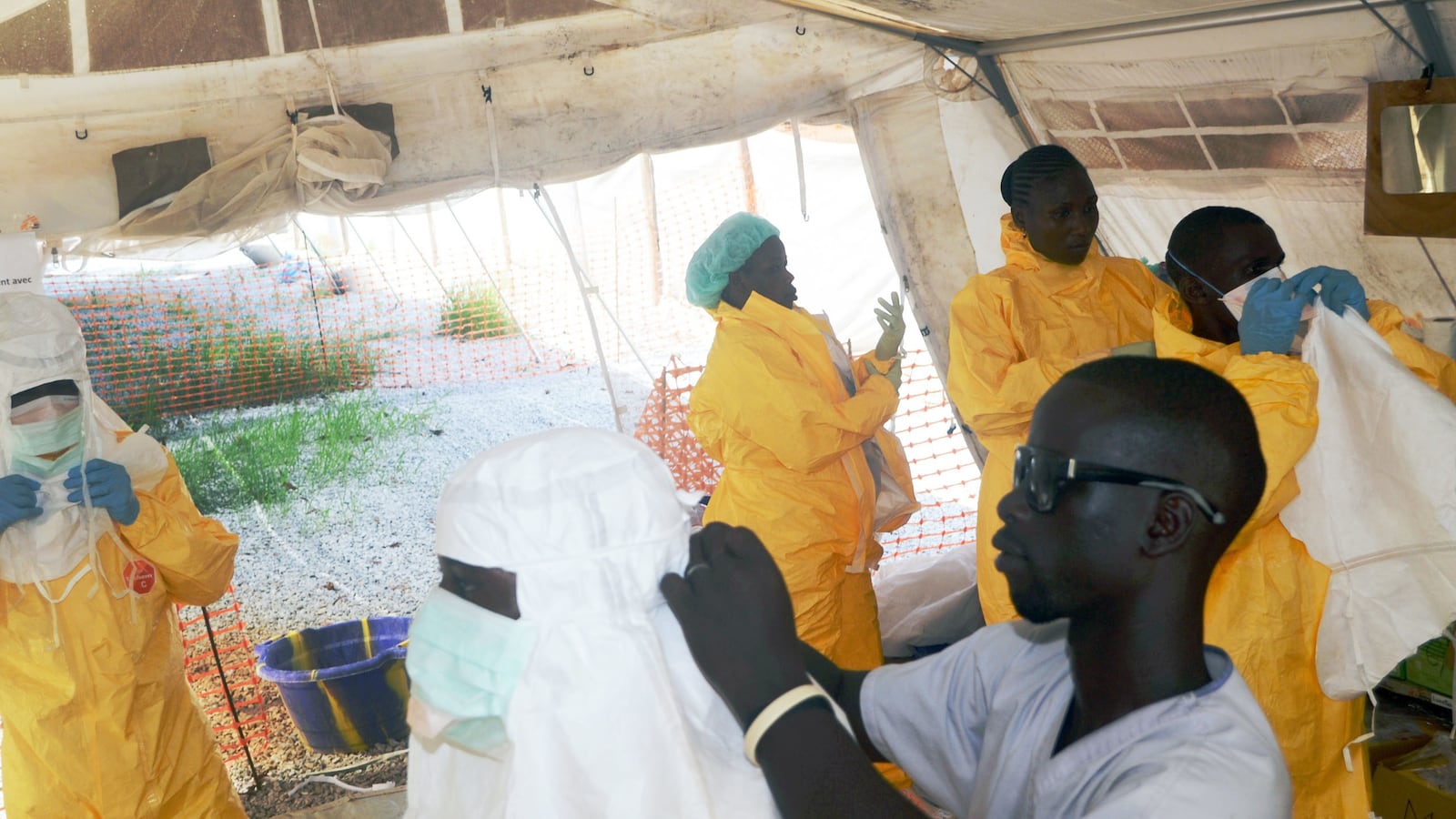By Mike Pflanz, West Africa Correspondent
Hundreds of West Africans could be carrying the deadly Ebola virus and not know it, potentially infecting hundreds more, as cash-strapped governments and overwhelmed aid agencies struggle to contain the virus's spread.
At least 1,500 people have not yet been traced who are known to have come into contact with others confirmed or suspected to be infected with the haemorrhagic fever, Medecins Sans Frontieres (MSF) told The Telegraph.
Many more could be moving freely in the three countries battling the virus, Guinea, Liberia and Sierra Leone, but fear of the illness and mistrust of Western medicine means they refuse to come forward to speak to doctors.
The current outbreak is the worst ever. So far 467 people have died and health staff have identified at least 292 other suspected or confirmed cases.
Ebola is transmitted by coming into contact with bodily fluids of an infected person. It has no cure and as many as 90 per cent of its victims die, often from uncontrollable internal and external bleeding.
Health authorities in Glasgow and organisers of the Commonwealth Games, which start in the city on July 23, said they were "monitoring the situation on a daily basis" because a team from Sierra Leone was coming to compete.
"Based on current advice from the World Health Organisation, we estimate the risk to the delegates from Sierra Leone is extremely low," the statement said.
The outbreak was now "out of control" in the three affected countries and could quickly spread across West Africa, according to MSF, which is leading efforts to deal with cases.
The virus's spread appeared to have been cut off in late April, when 74 people had died and Alpha Conde, Guinea's president, said the situation was "well in hand" and "touch wood there won't be any new cases".
But a rare mix of highly mobile populations, mistrust of outsiders, a fear of being diagnosed and treated, traditional burial practices, and a lack of funding all mean Ebola flared again.
The number of cases jumped by 129, or 38 per cent, in the week from June 25 to July 2, the WHO said.
Health staff have even been attacked. The Red Cross in Guinea said it had been forced to temporarily suspend some operations in the country's southeast after staff working on Ebola were threatened on Wednesday.
"Locals wielding knives surrounded a marked Red Cross vehicle," a Red Cross official said, asking not to be named. An MSF centre elsewhere in Guinea was attacked in April by youths saying the charity brought Ebola into their country.
"I have covered six previous Ebola outbreaks and this is unprecedented," said Michel Van Herp, an epidemiologist with MSF in Belgium, who spent two months in the region in March and April and is returning again shortly.
"It is unique in terms of the number of cases, where they are and how they are spread, the difficulty of putting enough treatment centres where they are needed, and the fact that these people move about so much."
MSF and other organisations including the British Red Cross are focused on treating those cases that come to their specialised isolation wards, but more needed to be done to reach out to the rest of the population, Mr Van Herp said.
West African health ministers on Wednesday began a two-day emergency summit in Accra, the Ghanaian capital, to improve co-ordination of their responses to Ebola.
Money was needed urgently for drugs, basic protective gear and staff pay, said Abubakarr Fofanah, Sierra Leone's deputy health minister.
"In Liberia, our biggest challenge is denial, fear and panic. Our people are very much afraid of the disease," Bernice Dahn, Liberia's deputy health minister, told Reuters on the sidelines of the Accra meeting.
"People are afraid but do not believe that the disease exists and because of that people get sick and the community members hide them and bury them, against all the norms we have put in place," she said.
The virus remains contagious even if the person it infected dies.




